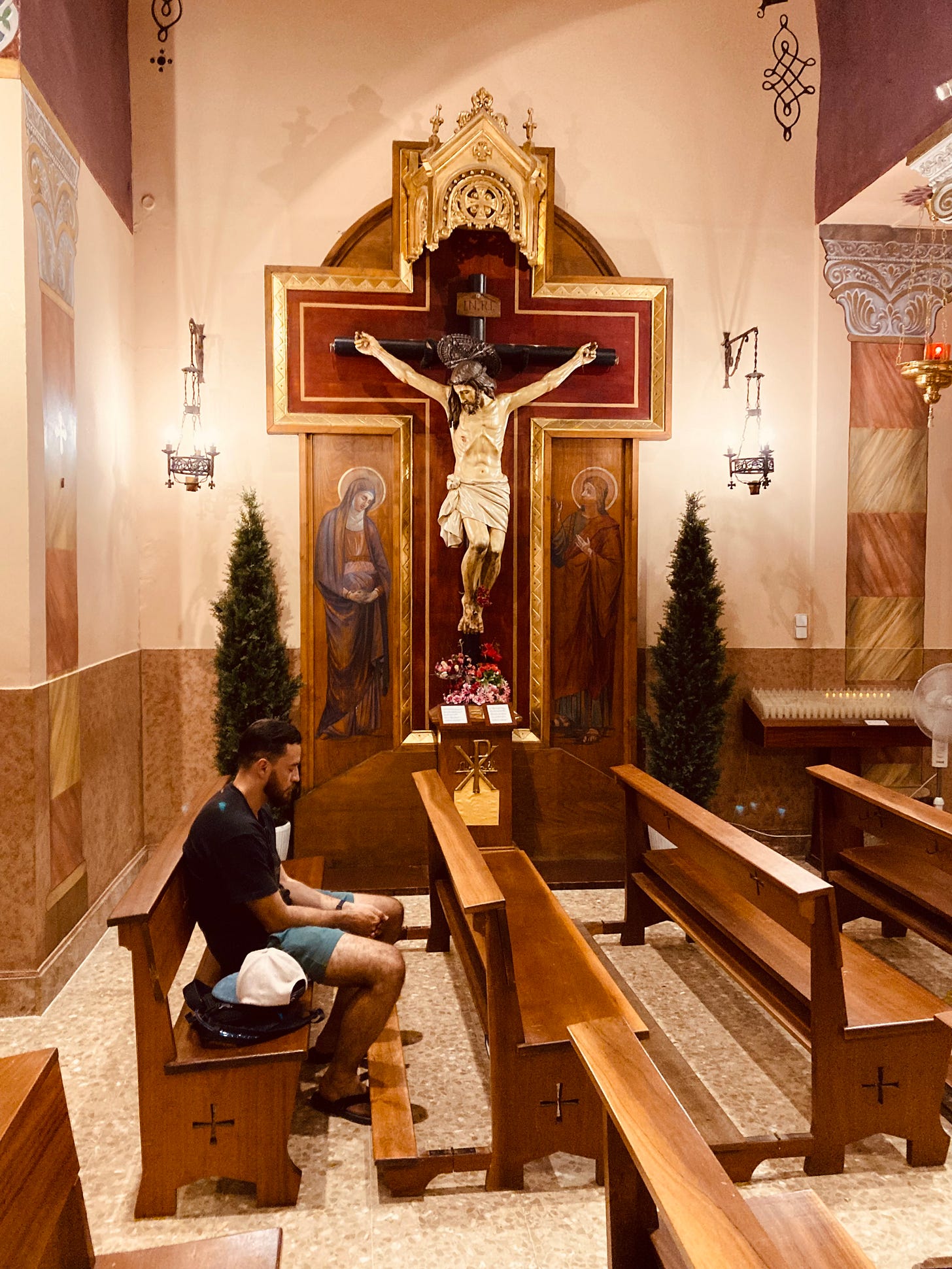Wrangling in the spergs
on neurodivergents in religious spaces
For some reason, some people found it shocking—perhaps even scandalous—that I would point out the fact that a significant amount of people who attend the Tridentine Latin Mass in the US find themselves somewhere on the Spectrum. I’m not exactly sure how this assertion constitutes breaking news…especially for those who have attended a TLM.
It shouldn’t be a secret the people on the Spectrum, especially those with traits associated with Asperger’s Syndrome, have an affinity for the rigid, predictable rubrics of the Tridentine Mass, and for examining the intricate details of the Church’s doctrine prior to Vatican II, especially in its Scholastic theological mode.
Much like the main characters in Huysmans’ novels, aspy trads have a capacity for construing labyrinthine categorizations for seemingly insignificant minutiae. Thus why they often struggle with the subjectivist, phenomenological, experiential (and at times, overtly sentimental) frameworks used post-Vatican II, and prefer more objective doctrinaire frameworks to approach Christian theology and practice.
That being said, characters like Des Esseintes in A Rebours and Durtal in La-Bas, En Route, L’Oblat, and Le Catedral shed light on how neurodivergent people caught in the throes of secular disenchantment and suffocating positivism don’t always veer toward conservative traditionalism. Some veer toward the other end of the “horseshoe,” opting for decadent aestheticism and spiritual (and usually sexual) fluidity.
Huysmans’ characters often experimented with unusual forms of gender and sexual expression. The amount of gender queer religious folk who are on the Spectrum show us the other ways that the autistic sensibility can manifest in the spiritual realm. I know a handful of former trads who went and dyed their hair blue, started dressing in gender non-conforming clothing, and changed their pronouns, many of whom remain very religious, but opt for a vaporous brands of syncretism, sometimes tying together New Age, pagan, monotheistic, and Eastern monist forms of spirituality. I’ve also met some who have renounced their gender queer pasts and gone all out trad, as well as some gender queer trads (there are a number of IG pages that speak to this phenomenon: @ineedgodineverymomentofmylife, @marymagdalenestan).
Aspies serve a kind of prophetic, almost shamanistic role in our disenchanted times. Like Huysmans’ characters, they are more prone to feeling the symptoms of the “sickness of the century,” and thus their eccentric proclivities ought not be dismissed wholesale.
That being said, aspies when left unchecked—and especially when they are not conscious of the fact that their intuitions and convictions are not normative, but rather prophetic—have a tendency to wreak havoc. Just look at the number of insular, draconian TLM communities, or the communities of syncretic semi-gnostic subversives on online forums like Tumblr, Reddit, and Instagram.
A young intern in a psychiatric hospital recently told me she was thinking of abandoning the field. She had studied psychiatry to find out how the human mind works, she said, but all she learned was which drug would control which socially incorrect behavior. And who's to say what's incorrect? ''If he showed up here tonight,'' she said, ''I would drug Vincent van Gogh so that he would never paint again.''
Not only van Gogh, I thought. What about religious visionaries and mystics, whose words and behavior cannot but seem to us quite strange, in some cases even ethically questionable? It is very difficult, she acknowledged, to tell the difference between symptoms of extraordinary creativity and those of mental illness.
-Lorenzo Albacete, “A Very Fine Line”
Prophetic figures, whether ascetic ones like John the Baptist and Dorothy Day or decadent ones like Oscar Wilde and Milo Yiannopoulos, are meant to provoke so-called normies to see beyond their narrow, conformist sensibilities and consider alternative perspectives. Excluding the gifts that prophets bring to the table is dangerous, just as much as the opposite extreme of making their prophetic narrative the normative one is. Culture is flattened when the insights of mentally unstable people is eliminated, when they are all tranquilized or or hidden from view.
But chaos will ensue is we were to tell neurodivergent people that they are stable, and that all of their delusions are real. Religious communities should aim to include aspergians and integrate their insights, rather than allowing them to create niche microcommunities like the ones that are currently creating much division in the Catholic Church.
Yes, most Novus Ordo Masses in bourgeois locales are dull and often times irreverent. Aspies tend to be much more heavily impacted by this than others. The solution is not for them to run off to TLM parishes and then create factions that insist that the ONLY valid Mass is the TLM. Same with the other end of the ideological spectrum. A simplistic conformist attitude toward aesthetics and gender expression can become suffocating, which many aspies are keenly aware of. The solution is not to abolish the gender binary and turn to heretical expressions of art and spirituality.
For further reading, check out:
Were some saints mentally ill, or holy, or both? | National Catholic Reporter (ncronline.org)
The Danger of Respectable Christianity - Mere Orthodoxy | Christianity, Politics, and Culture
Confessions of a 'Weird Catholic' | National Catholic Reporter (ncronline.org)
Fr. Matt Schneider’s new book God Loves the Autistic Mind: Prayer Guide for Those on the Spectrum and Those Who Love Us
$upport CracksInPomo by choosing a paid subscription of this page, or by offering a donation through Anchor. Check out my podcast on Anchor and YouTube and follow me on Instagram and Twitter.
Photos taken in Barcelona.


